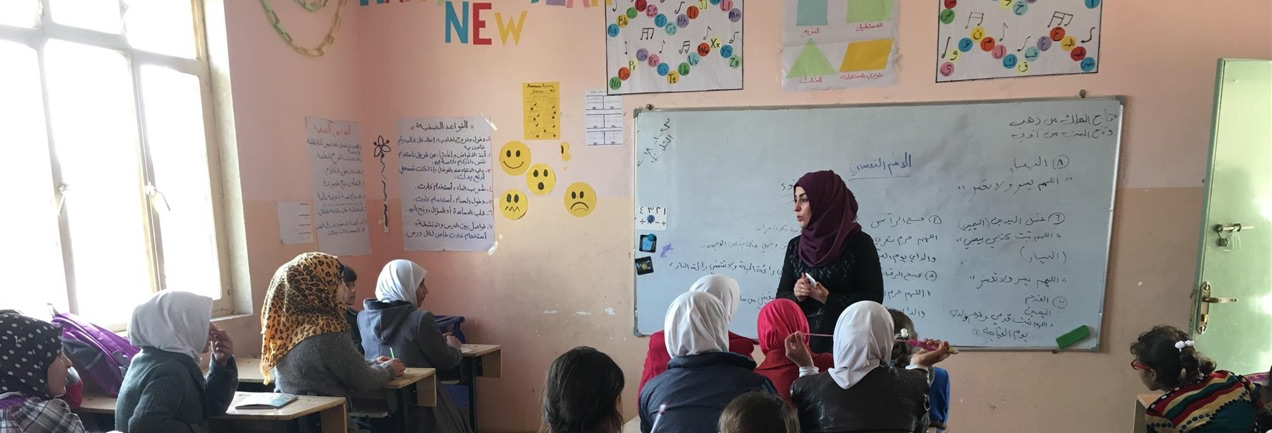Being children again: Rebuilding in Iraq after ISIL
Published: Jul 4, 2018 Reading time: 3 minutes Share: Share an articleMonths after the fall of so-called Islamic State (ISIL) in northern Iraq, normal life is slowly coming back to the city of Mosul. Schools are being reopened, children again attend classes. But the experience of war cannot be that easily erased from people's minds. Both children and teachers struggle to find happiness after all they have been through.

Hanan Najim, a 14-year-old girl from Mosul, remembers the times under ISIL vividly: "When ISIL was here, I wasn’t studying and couldn’t go to school. We missed our studies for three years because they were teaching children in their system, which was so violent. We were scared. There was war and bombing everywhere."
Now Hanan attends classes in a secondary school in the western part of Mosul. One of her favorite subjects is English. "My hobbies are sport and writing poems, and I love English classes because I want to develop myself and to learn another language. I would like to be a doctor in the future," she says.
Being exposed to brutal violence for years, children need long-term psychosocial support
Being able to go to school is not enough though. To recover from years of being exposed to brutal violence, children like Hanan need long-term psychosocial support. Hanan's teacher, Ibtihaj, has first-hand experience: "The war has influenced many students. Through our work, we have seen cases of fear, hesitation, lack of self-confidence and focus, inability to retain what they have learned before. We even noticed violence among peers. It became difficult for children to socialize."
Ibtihaj and her colleagues use psychosocial support tools and recreational activities to reduce stress, foster their pupils' resilience and coping, and to build supportive relationships. Children draw, play games or participate in sports, or learn how to make things. Being able to creatively express themselves, to be children again, they gain back confidence and the ability to build a new life.
They are also providing catch-up and remedial classes in subjects such as Arabic, English and Math that help children fill the gaps from the missed school years during the ISIL occupation. These catch-up classes support their transition back to daily learning during the first new school year.
War had been their whole reality. Now they want to be doctors or teachers
"The first day I met the children, I asked them: 'What is your plan for the future?' They started laughing because the war had been their whole reality. But now, when I ask them the same question, they answer: 'I want to become a doctor,' or 'I want to become a teacher,'" Ibtihaj says.
Ibtihaj was one of the 76 teachers and facilitators trained in psychosocial and educational support techniques for children affected by the war in West Mosul by People in Need and and it’s Alliance2015 partner ACTED, with support of the European Commission’s Humanitarian Aid and Civil Protection department (ECHO).
She has high hopes for children like Hanan. "I look at Hanan and I see a successful future for her. She suffered a lot but she is smart and bright; she only needs someone to inspire and support her. I imagine her finishing school and fulfilling her dream of becoming a doctor."
More on Iraq



